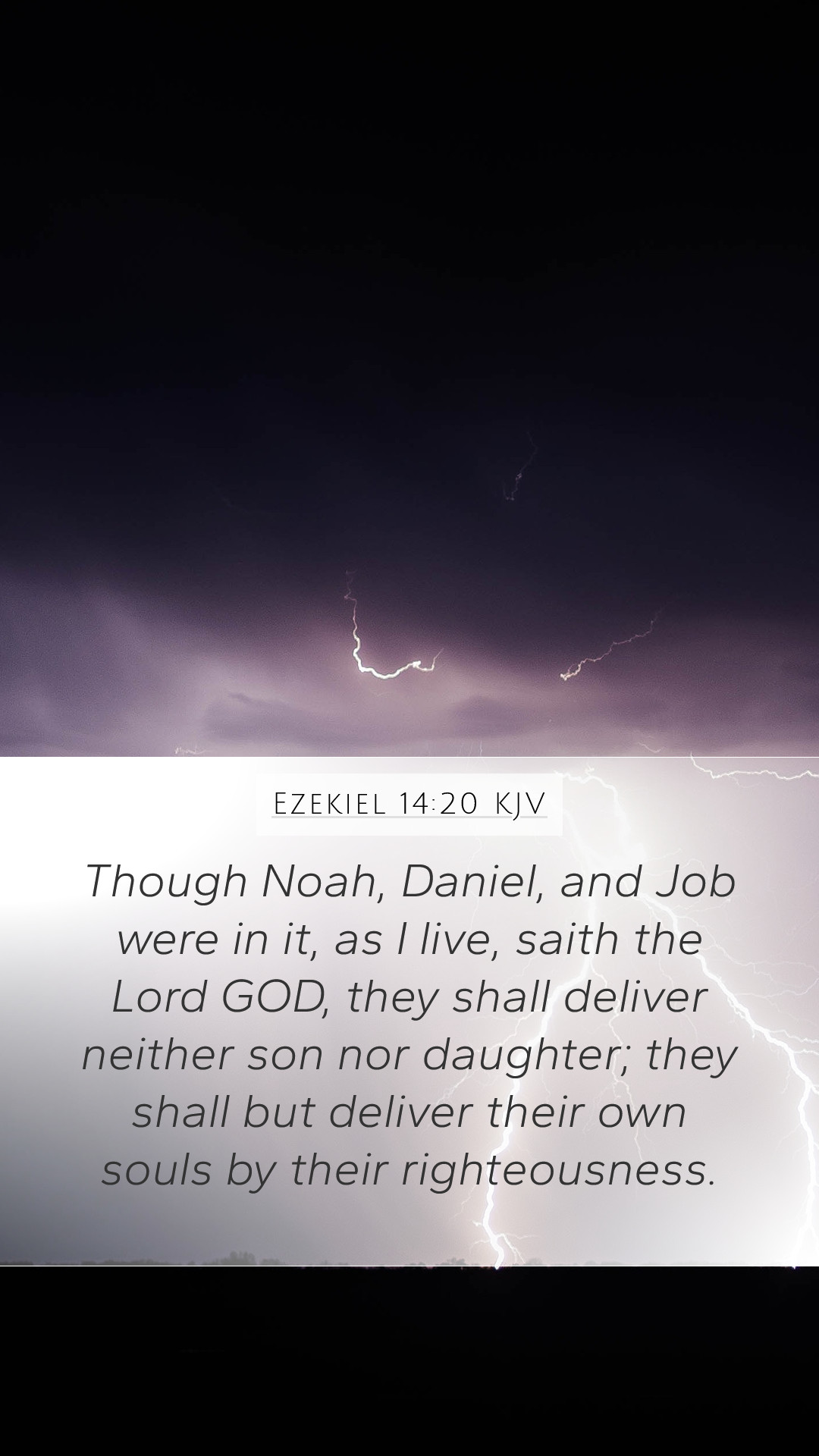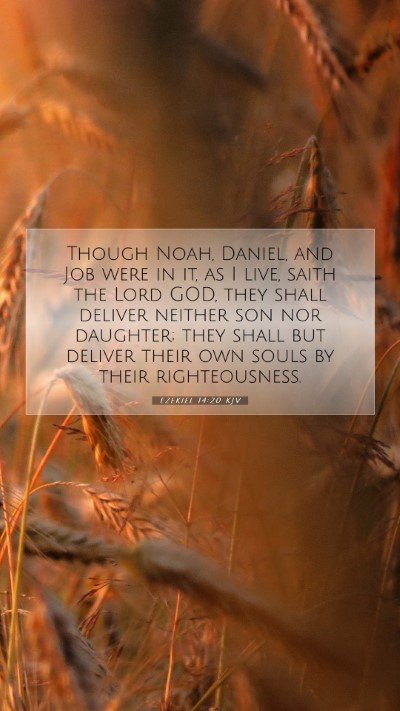Ezekiel 14:20 - Bible Verse Meaning and Commentary
The verse Ezekiel 14:20 states, "Though Noah, Daniel, and Job were in it, as I live, saith the Lord God, they shall deliver neither son nor daughter; they shall but deliver their own souls by their righteousness."
Overview
This verse emphasizes the severe consequences of sin and the individual nature of salvation. It highlights that even the most righteous individuals cannot save others but only themselves by their own righteousness. The examples of Noah, Daniel, and Job serve to illustrate the depth of personal integrity and the inability to intercede for others in specific judgments from God.
Commentary Insights
-
Matthew Henry:
Henry notes that this verse serves as a stark reminder of the accountability each person has for their actions. He emphasizes that even great men of faith are powerless to save their families when God’s judgment is upon a land. This underscores the importance of personal righteousness.
-
Albert Barnes:
Barnes points out that the mention of Noah, Daniel, and Job reflects their recognized righteousness amidst a corrupt world. While they were paragons of virtue, their integrity cannot shield others from the consequences of their sins, reinforcing the personal responsibility each individual has before God.
-
Adam Clarke:
Clarke elaborates on the implications of God's judgment and the certainty of individual accountability. He emphasizes the impossibility of obtaining salvation through others' righteousness. Each person must strive for their own relationship with God and maintain their sanctity.
Key Themes
-
Righteousness:
The verse illustrates the theme of personal righteousness, emphasizing that salvation is contingent upon one's own faith and actions rather than the inherent virtue of others.
-
Divine Judgment:
The context of the verse relates to God's impending judgment upon Jerusalem, demonstrating that individuals cannot escape the repercussions of communal sin merely through association with the righteous.
-
Historical Context:
Understanding the time of Ezekiel and the moral state of Israel can aid in interpreting the urgency of the prophet's message regarding personal accountability.
Application of the Verse
In applying Ezekiel 14:20 to daily life, it calls for introspection regarding one's own faith and relationship with God. The verse encourages individuals to cultivate personal righteousness and make moral choices that reflect one’s own faith rather than relying on the righteousness or status of others.
Cross References
- Genesis 6:5-8: Describes Noah's righteousness in a corrupt world.
- Job 1:1: Details Job's integrity and his relationship with God.
- Daniel 6:4-5: Highlights Daniel's exceptional qualities and faithfulness.
- Jeremiah 15:1: Discusses the futility of intercession when God's judgment is set.
- Romans 14:12: Stresses individual accountability before God.
Conclusion
In summary, Ezekiel 14:20 serves as a powerful reminder of personal accountability in faith and the necessity of individual righteousness. Each person must engage in their relationship with God and strive for their spiritual integrity, reflecting the profound theological underpinning of personal salvation found throughout Scripture.


